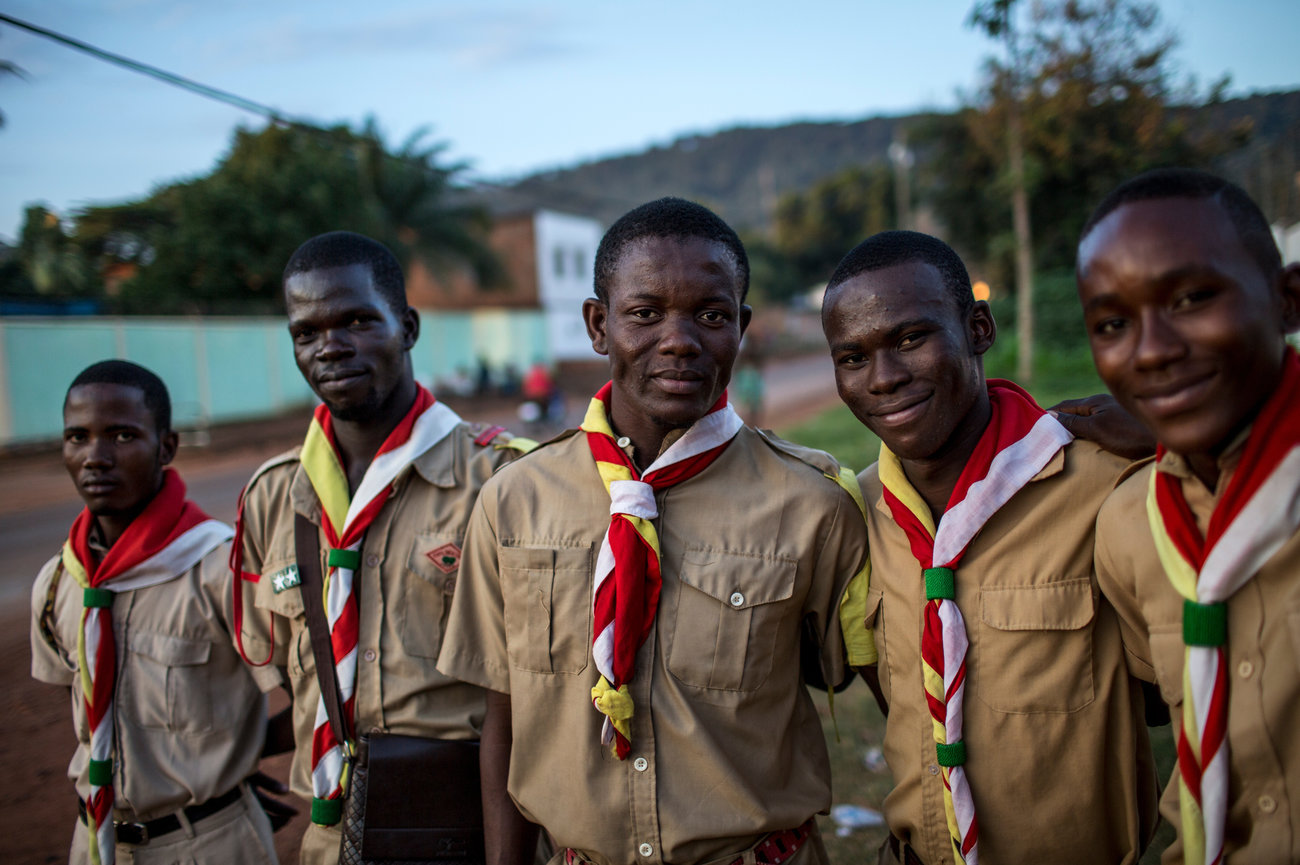The Central African Republic (CAR), as its name suggests, sits at the center of the African continent. The country covers an area of land just a bit smaller than Texas and has a population of about 4.7 million people.
The national government, located in the western capital city Bangui, has little control over the country. Instead, more than a dozen armed groups across the country are constantly vying for control of land and resources. For most people living in CAR’s isolated communities, daily life is directly impacted by violence and conflict and divisions within these communities are exploited and exacerbated by armed groups seeking control.

Members of the Flambeaux group of scouts, who have been engaged to act as security at an event, stand outside Le Complexe Scolaire International Galaxy in Bangui. Photo by Will Baxter for NPR’s Goats and Soda
But, across CAR, there are many leaders who are taking important steps to organize their communities to prevent violence and find solutions to the challenges that can often lead to conflict. An excellent example of this are the thousands of scouts throughout CAR.
This week, we came across an article written by Simon Allison for NPR’s global health and development blog, Goats and Soda about Central African scouts who are stepping in as an “army for peace” in their communities. According to the article, there are about 20,000 scouts across CAR who are earning the usual badges for things like woodworking, cooking, and navigation as well as playing a pivotal role in the health and security of their communities.
According to Allison, scouts are taking on responsibilities everywhere from promoting vaccination and hygiene campaigns to investigating reports of Ebola outbreaks, to mediating conflict between rival armed groups. In a country that is incredibly fractured, with little to no national government presence outside the capitol, scouts have become key to filling increasing gaps in Central African society. And this roll gives boys and young men a sense of place and responsibility in their communities, something that helps prevent them from recruitment in armed groups, to which they are especially vulnerable.
Like many in the Central African Republic, and communities around the world, Central African scouts are taking it upon themselves to improve their communities. Their accomplishments are an excellent example of how the most effective solutions to violence and exploitation are not developed in far-away offices by a powerful few, but by local leaders who are directly affected by the challenges of their own communities.
Think people should hear about this?